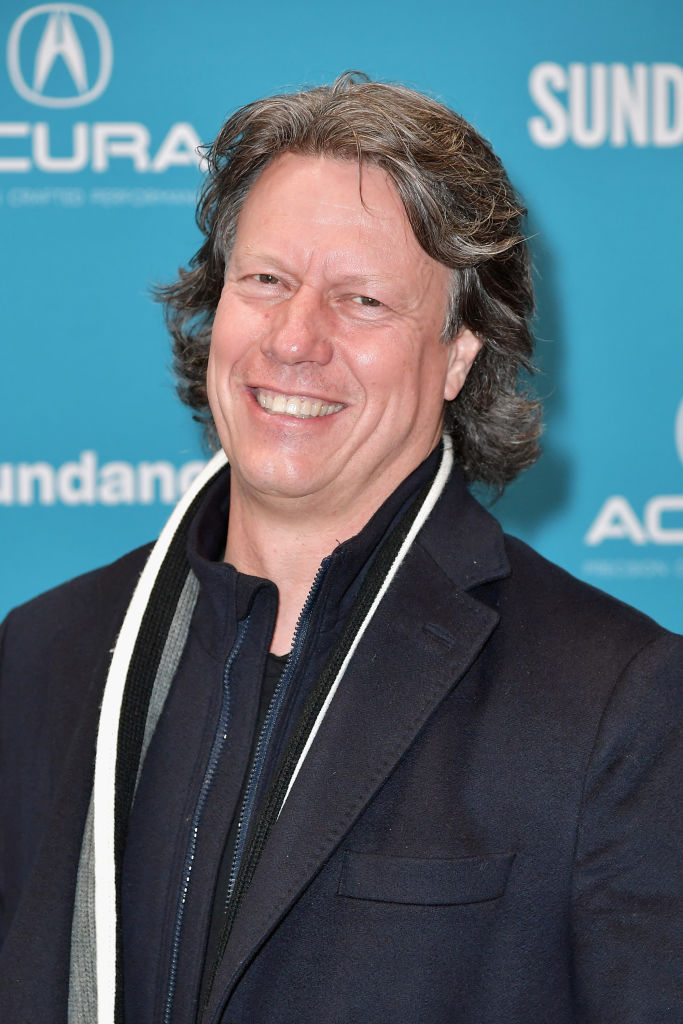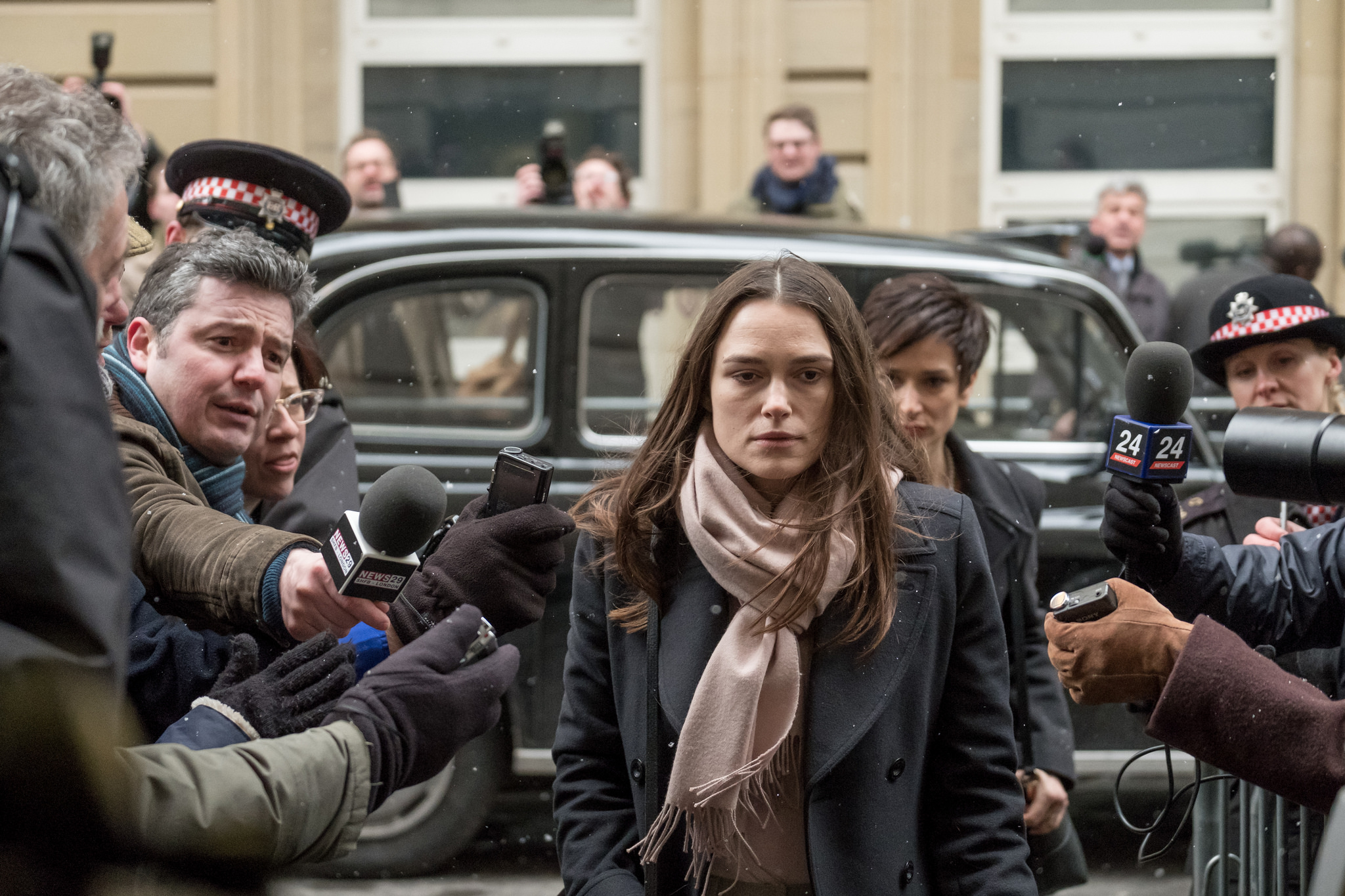
- Festivals
Gavin Hood: ‘We have to speak the truth’
The reviewers who wrote about Official Secrets after its Sundance premiere must have left by the time the credits finished rolling and the director of the film, Golden Globe nominee and Oscar winner Gavin Hood, came out to the stage. What followed was very impressive. A standing ovation lasted so long that Hood tried to speak several times before having to ask the enthusiastic audience to stop so he could start the Q&A. Not surprisingly the film sold to IFC a few days later for US distribution. A tense thriller about a whistleblower (Keira Knightley) in a British spy agency, who decides to leak a secret memo after realizing it contains a directive to blackmail members of the UN Security Council into supporting the Anglo-American invasion of Iraq and overthrow of Saddam Hussein, Official Secrets also stars Ralph Fiennes, Matthew Goode, Matt Smith and Rhys Ifans. This is what the South African director of films like Eye in the Sky, Ender’s Game, X-Men Origins: Wolverine, Rendition, and Tsotsi told us after returning from the snow.
I was surprised that no one reported on the standing ovation you got when you came out to the stage at the premiere in Sundance. How surprising and how moving was it for you?
It was very moving and very surprised and probably as you noticed I was deeply moved. Because you never know when you make a film how an audience will respond. We also know that this is a film that has a political element to it and sometimes people can be very divided.
The movie was sold a few days later. Was it a crazy, all night negotiation?
It was three prospective buyers. I don’t believe I should say who they were now, because it’s not fair on the others. But there were three buyers that were competing with each other and I was hoping that the buying, bidding would be resolved by the next morning but it went through the night. And it still wasn’t done and it continued for a few more days and we are very excited that IFC came through as the ultimate buyer. They are a New York-based distribution company and I am very pleased because, in conversations, they totally understand the tone and feeling of the movie. And I think they will be a fantastic resource for us in knowing how to get the movie up into the world. Because this kind of film needs a platform release and I think it needs nurturing and it needs to generate conversation amongst for example investigative journalists. And as you know, the film is about a number of investigative journalists who are very talented and work for some of the best newspapers like The Guardian and The Observer in London. The journalists and Katherine the spy are all alive, as is Emerson, the lawyer that Ralph Fiennes plays. They have all seen the film in London and I am pleased to say we have their support.
You mentioned Katherine the spy, but I believe the reason audiences connected so much with the movie, is because you show her more like a girl who had a special talent, who got a good job near her house and got into the heart of a monster without really being interested in being a spy and just reacted as a normal person.
She had to testify after all these events, before a Parliamentary committee, and the chairman said, ‘you were at GCHQ and I imagine it gets involved in all kinds of dirty tricks. That is what that world is about and presumably, you knew it’. And she said, ‘well, there are dirty tricks and there are dirty tricks. On this occasion, we are not just talking about issues that have to do with economic development or trade negotiation, this was a matter of life or death and a matter of war and peace. It was a matter of invading a sovereign nation which had done absolutely nothing to harm our nation or the US, therefore, I felt that the poor Iraq civilians, who we now know have died in the hundreds of thousands if not millions, still would be potentially living today. We have a Presidency here in this country now which is demanding personal loyalty. Which is nonsense, we are not personally loyal to you Mr. President, we are loyal to what you represent. And if you fail to represent the certain values of this democratic country that is founded on a strong sense of fairness and justice, with a Constitution and checks and balances, then our loyalty must be to the institution and the Constitution and not you.

Keira Knightley in a scene from Official Secrets.
sundance institute
This project had a previous incarnation before with a full cast and another director. But you made it your own. How was that process?
I was not part of the previous project so I can’t comment, nor do I really want to, on what they went through. I had a similar situation on Eye in the Sky and when Jed brought it to me, the same producer had been in development for about seven years and different incarnations. For Official Secrets I read the story when Jed sent it to me, and first, I hadn’t been aware that it had been around for so long and I just called him and said look I really like the story, but I would not feel comfortable doing it, unless I had sat personally with Katherine Gunn and with Martin and with the journalists and with Ben Emerson in particular. Those are the key players and I need to know that I am going to have their support.
So before I ever signed on, my first step was to go and meet with these folks. And in meeting with them, what happened was the book Marsha had written, which the original script was based on, Marsha had focused her interviews mostly on Katherine. Which is perfectly legitimate and as I had said to you, people would criticize me for not just telling Katherine’s story. Which is more of a conventional thing. What happened to me was when I went over and began to interview these people, for example, found out about these crazy moments, you can’t make that stuff up. (laughs) It’s like this has to be in the movie. And so for me, the through line became the memo. It was a very difficult script to write because of course, the story in front is anticlimactic and you are expecting a big court case and then there wasn’t one.
So for many months, I really struggled to find out how is it going to work. I told the writers, guys, we have to speak the truth, we can’t make stuff up, this is too important a story. So I have to make the truth dramatic, not the other way around, and you can’t take license on this. It’s just that when these threads come together. And what I discovered was Katherine and Martin did not meet until the trial. And some producers would say, but why can’t we have them meet, maybe they meet earlier as spies, but that didn’t happen. And I just think with this, if I was writing a piece of fiction, do whatever you like. But this is too important and we have to make this work dramatically within the constraints with what actually happened. And that is, it’s very unusual in a film, for example, to have a character like Martin Bright in two acts and then drop him and hand the baton to Ralph Fiennes. Which is why casting someone in the role of Ben Emerson as strong as Ralph Fiennes was so important, because if you are going to hand the baton in the third act to a different character, that character better be really, really powerful.
You have two amazing performances in the movie, one is Keira of course and the other is Ralph Fiennes. Can you talk about those performances in your film?
First, with Keira, it was very interesting when we were chatting and we looked at should she dye her hair blonde and should she wear glasses, in other words, should she try to imitate and should she change her nose? Because if you are doing a character like Margaret Thatcher or Dick Cheney, these people are so well known that you almost have to transform physically and be exactly like them.
And at one point Keira said to me Gavin, nobody knows Katherine and I just want to get to the emotional heart of what it would be like, it’s just an ordinary person where something extraordinary comes across my desk and I have to speak up. So Keira’s feeling was, what if I Keira, just me, with my hair ordinary and no makeup, with just a pair of jeans, the way Katherine went to work, can I just feel what it is like to be Keira, in that situation? And I think my emotions will be as truthful as possible. Let’s find the emotional truth of this woman’s experience without imitation, just me, when I get this memo, just me when I have to see my friends are going to be in trouble, what would I feel like as Keira? And I think that is one of the reasons the performance was so honest, she was just approaching this with the humility and the respect for what Katherine went through as an ordinary person.
And so we just looked for the simple, honest moments and so I knew and she knew, that a lot of the storytelling is just in silence. There’s this wonderful moment where she is sitting there and she is trying to decide whether she will walk into her bosses office and say it was me, I did it. I let the camera just track her around her face for the close-up and in those, whatever it is, ten seconds on her, you see the gears, you see the internal struggle. And that quiet internal honesty that Keira brought to it, is I think what gives the performance its strength. And then Ralph was a different thing. I met him after I had met Ben Emerson himself. Ben is a force of nature. I interviewed Ben and he is extremely intelligent and he is forceful and he is passionate about being a human rights lawyer and he is not afraid, he is fearless, as a human being and as a lawyer about searching for the truth. And it was very important that we found an actor that could match the forceful strength and intellect of the real Ben Emerson. And thankfully Ralph can and does. And so Ralph very much felt to be sure that he was encapsulating that strength and that commitment and obsessiveness and intelligence of Ben and I believe he does very well.

